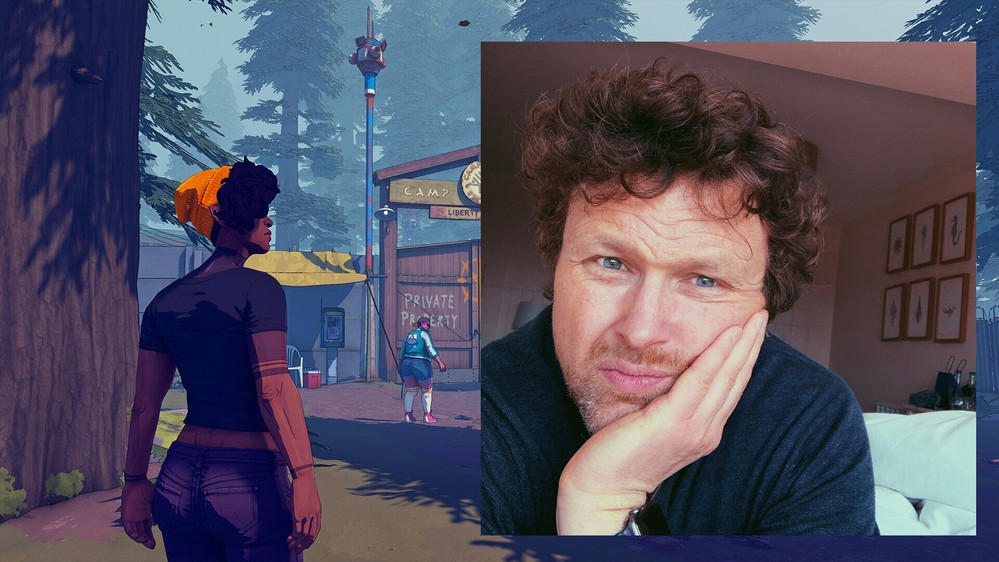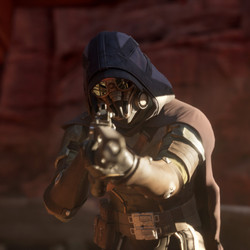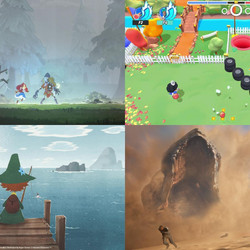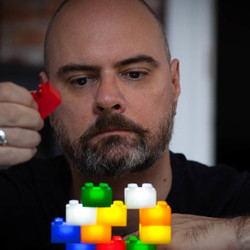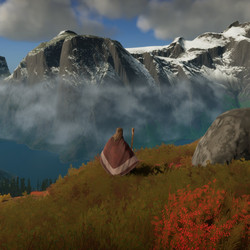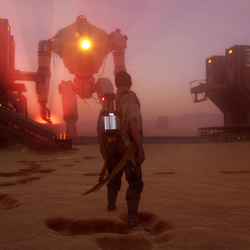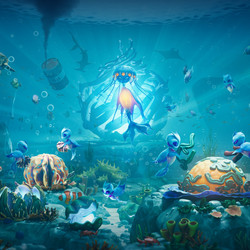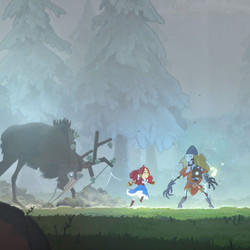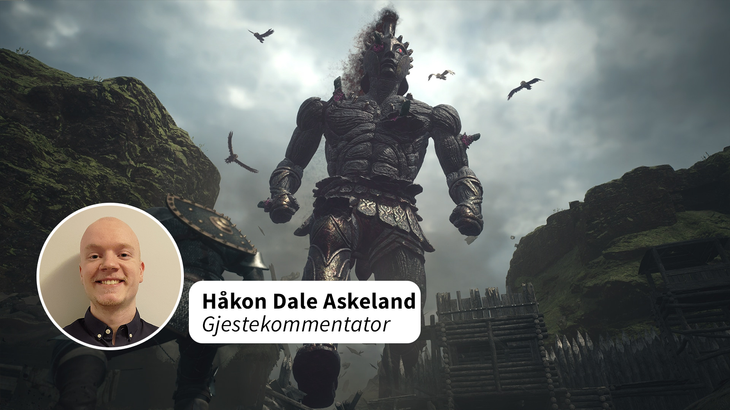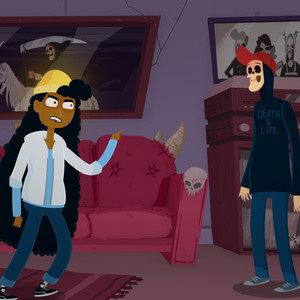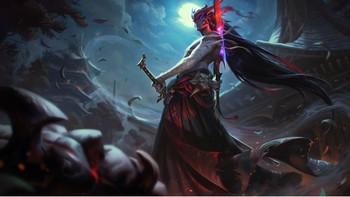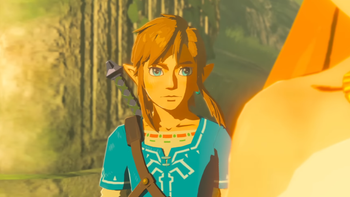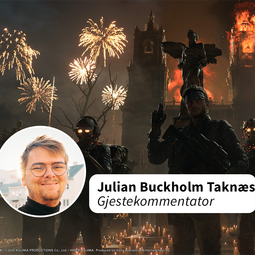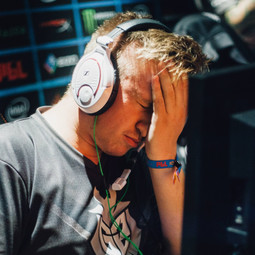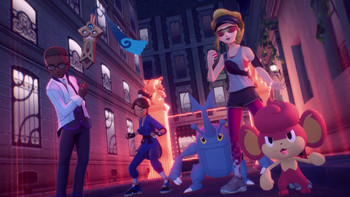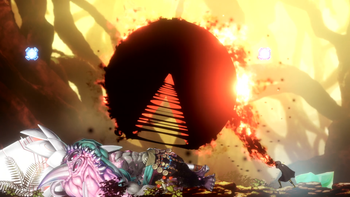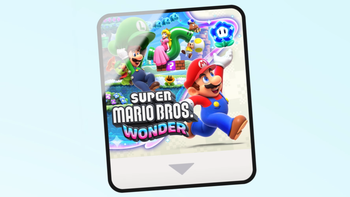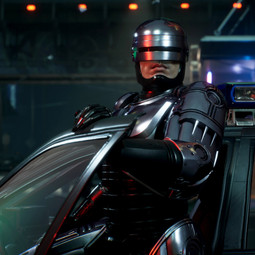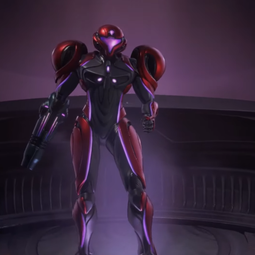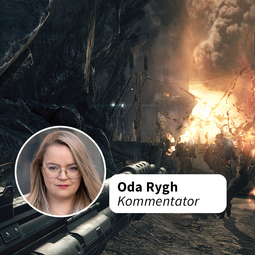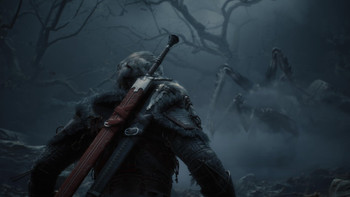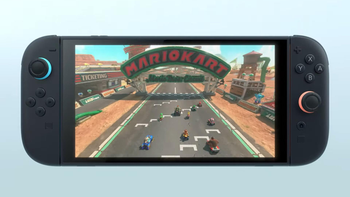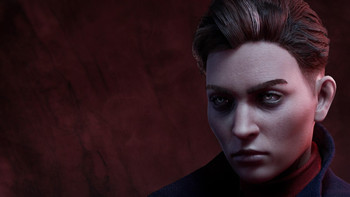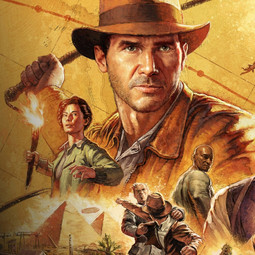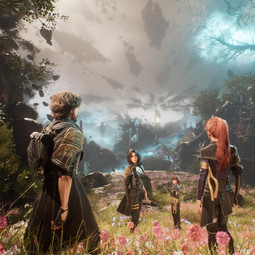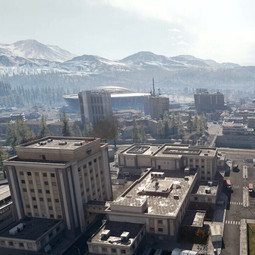This article was originally published in Norwegian. You can read the Norwegian version here.
Ragnar Tørnquist is one of the leading figures in the Norwegian game industry. He has worked in game development for nearly 30 years and loves his job.
It is his greatest passion.
However, the launch of Dustborn, the newest game from Red Thread Games, has forced him to seriously reconsider whether game development is something worth pursuing.
Is it worth living this way when you have a family?
That is one of the questions Tørnquist has asked himself. The game has garnered enormous international attention, mostly of the negative kind.
While critics have received Dustborn in a somewhat lukewarm fashion, criticism has flooded social media. Many have reacted strongly, claiming the game pushes a "woke agenda".
Conspiracy theories are abound.
"It caught us completely off guard. We were very surprised by the extreme reaction to the launch, and we had no plan for how to handle it", Tørnquist tells Gamer.no.
Wild falsehoods
Tørnquist has been through tough situations before. He lives at a secret address and has an unlisted phone number, precisely because he knows how intense fans can be.
But nothing could have prepared him for what happened with Dustborn.
He won't go into detail about everything he's heard, but Tørnquist claims there has been both harassment and threats.
"You can easily ignore what’s said on forums or on X. Emails feel a little closer to home, but receiving text messages where someone wishes you dead, is unsettling", he says.
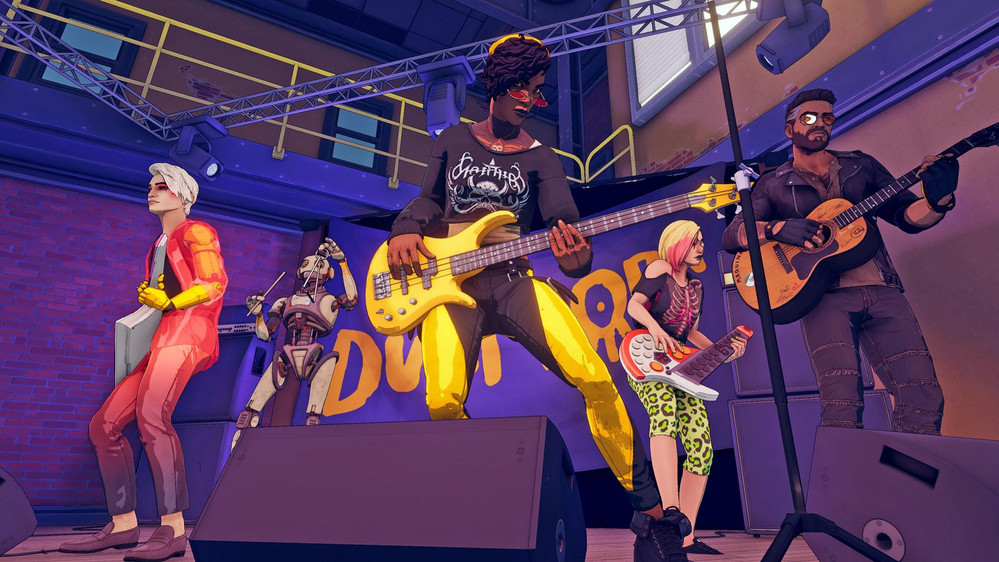
Several videos about Tørnquist have surfaced on YouTube. One video claims that Tørnquist has said he wants to drown babies.
That is obviously pure fabrication, but Tørnquist finds it surreal.
"It should be fairly obvious that I don’t want babies to die", he says, laughing in frustration.
"I think it’s outrageous. There’s no way I can get this removed, and it’s a very damaging lie. I just have to ignore it and hope people are smart enough to understand that it’s not true."
Blown out of proportion
On social media, many are drawing parallels between Red Thread Games' Dustborn and Firewalk Studios' shooter Concord.
Red Thread’s office in Oslo houses 12 people. Firewalk has 165 employees and Sony, a billion-dollar company, backing it as a publisher.
"We are a tiny studio. That’s why it feels so blown out of proportion when we experience so many attacks and conspiracies. It takes a toll."
Red Thread’s goal is to create story-driven games that stand out. They aim to make something innovative and fresh.
The developer has always made games that are different, often featuring characters that are a bit out of the ordinary.
That means many people don't like their games, and Tørnquist is fine with that. They have their niche.
Their games aren't for everyone.
"It’s been really tough to deal with this. We’re used to people not liking our games, but we appreciate well-argued reviews, even if they’re negative. The difference here is the massive amount of negative feedback from people who have never played the game and never will; they just jump on the bandwagon of those making videos", says Tørnquist.
– Difficult
"We have to take the threats seriously", says Tørnquist.
One of his most important tasks as a leader has been to shield his employees from the worst of it.
Before the launch, they talked a lot about how they should avoid reading social media and focus on the positives instead.
They’ve tried to lift each other up by sharing the good feedback they receive.
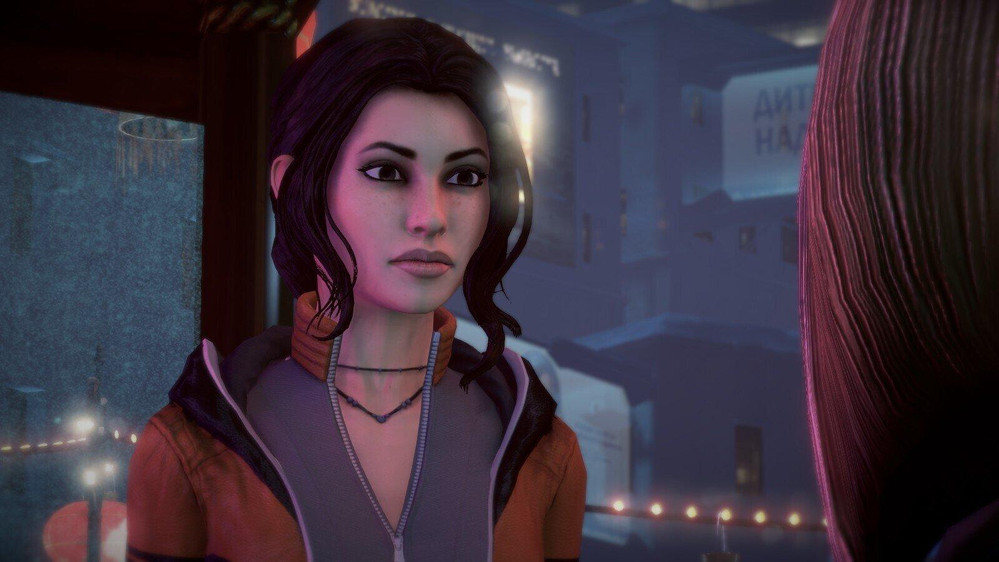
"Fortunately, most of the team hasn’t been directly targeted. We’ve done what we can to support those who have received personal messages."
For about half of the team, Dustborn is their first experience creating and releasing a game.
"It’s tough to see people talk about their work, calling them incompetent or lazy, or saying they should just quit making games. It’s obviously difficult for us."
Satire?
"Did you expect debate over some of the more obviously politically correct aspects of the game?"
"Yes, but we were never out to provoke. We just wanted to make a game with characters that are different. We didn’t think it would be so controversial that a group would fight against a fascist regime. I don’t think many people want to live in a police state. And our version of the U.S. is by no means the real America."
Many games have faced criticism for using more pronouns than just "he" and "she". Dustborn also does this.
"The use of pronouns has become relatively established in games, and we knew people could react to that. But it was the reality we wanted to present. We don’t feel we’ve made a game that’s primarily about politics. It’s more about language and relationships between people."
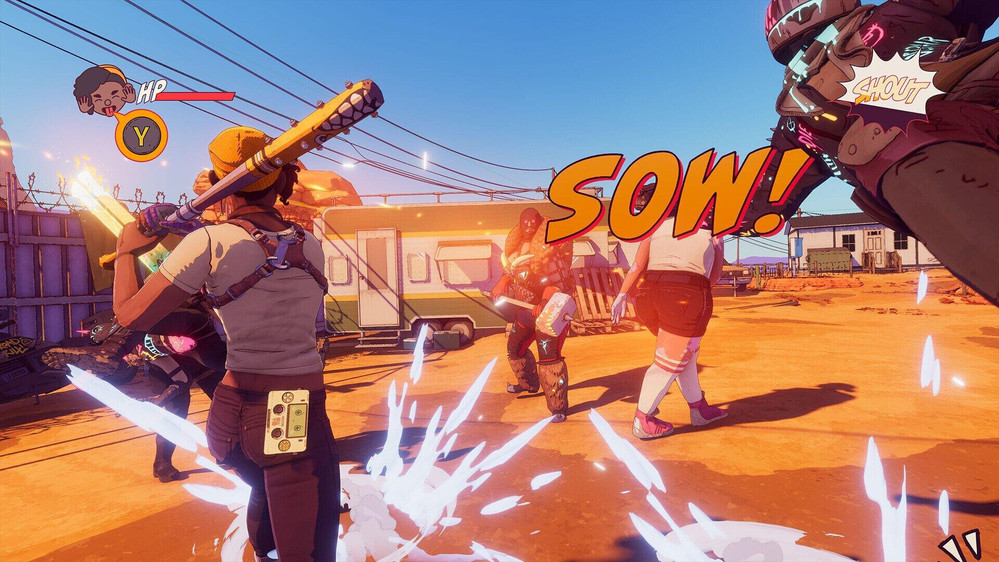
One of the game’s premises is that words have power, and in its combat system you can "trigger" or "cancel" opponents.
Some professional critics have pointed out that this must be satire, while the internet takes everything much more seriously.
"So, is this satire?"
"I think the game speaks for itself. It’s over the top in many ways. It’s colorful, inspired by comic books, has fight sequences against giant robotic mascots, and it has a sarcastic view of the world. It doesn’t take itself very seriously", says Tørnquist, elaborating:
"I hope people can see the game and understand that it’s an alternate world, something that also applies to the story. The game may be a dystopian reflection of the world, but the story is not written for realism. It’s done with humor and exaggeration, and it’s very much tongue-in-cheek."
"Tidal wave of hate"
Red Thread currently has about 16 employees in total. The number has been stable for a while, and keeping it that way is a goal moving forward.
They want to keep the same team. It creates financial security because they’re flexible if they end up cancelling a project.
"We all care a lot about each other and enjoy working together."
After the launch, they posted a message on social media, asking people to behave, following what they called a "tidal wave of hate".
Tørnquist feels that this was mocked. So they decided to remain silent about the game and wait for things to calm down.
That hasn’t worked either.
"It seems like people twist everything we say with malicious intent. They’ve created a narrative that Red Thread is corrupt and making propaganda, but the fact is that we’ve made a game we want to talk about and share with others. It’s not for everyone, and they don’t have to play it."
Not a flop
On social media, a big deal has been made about Dustborn being a flop and that no one is playing it.
That’s not how the developer sees it. But Red Thread would certainly like the sales numbers to be higher.
"Dustborn is not a flop. The game has received mixed reviews but also a lot of positive feedback. Those who actually play it seem to enjoy it. Dustborn isn’t selling as much as we would like, but we’re proud of it and think it’s a good game", says Tørnquist.
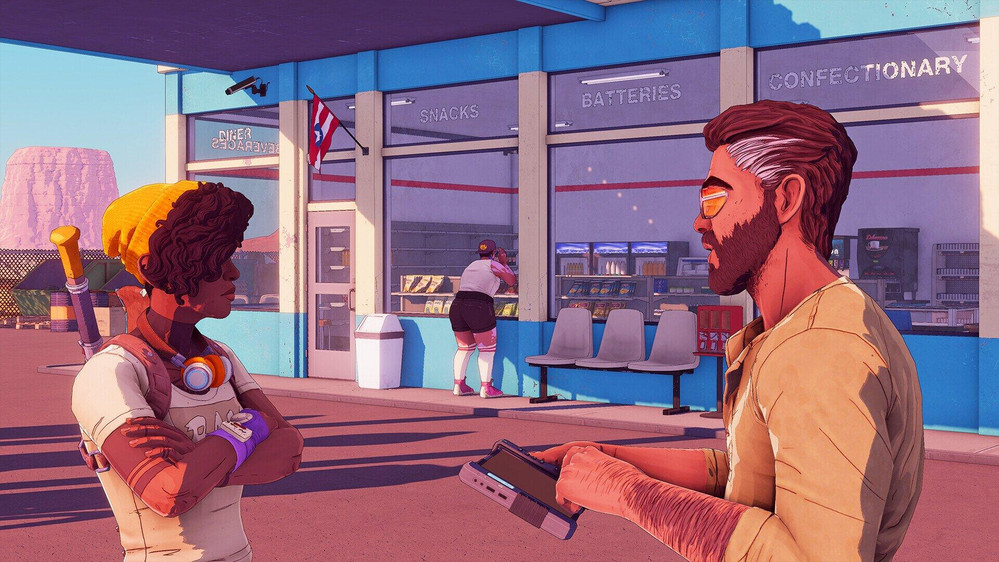
The publisher, Quantic Dream, holds the detailed sales figures, so Tørnquist doesn’t have full oversight yet. This is common for game launches.
"Even though it’s not an immediate success, it has sold far more than what people are saying online, I can say that."
Profitability takes time
"Our internal goals for Dustborn haven’t been met, but that doesn’t mean it’s a flop."
Red Thread’s strategy is to have a diverse portfolio of games that sell for many years. Dustborn is part of this.
They continue to work on updates for the game and are listening to the feedback they can.
Red Thread is also working on entirely new projects.
"It can take months and years for story-driven games like this to find their audience, so we’re not dissatisfied."
None of Red Thread’s games have been big commercial successes. It took years for Dreamfall Chapters to turn a profit.
Tørnquist says that being a game developer is a stressful life, and most games eventually lose money.
Still, they keep going, out of love for the work.
State funding in the millions
A significant part of the discussion surrounding Dustborn has been the game’s public funding.
Red Thread received 14 million NOK from the Norwegian Film Institute (NFI) for the development of the game and has also received around 150,000 Euros in EU grants.
Once they are financially stable, like Funcom, they will focus on giving back to the industry.
"Our goal is to earn enough that we don’t need support", says Tørnquist.
Most Norwegian developers of a certain size have, at some point, applied for NFI funding.
"The support has been important for the Norwegian game industry, and this is money that goes back into the economy. It also helps build the industry and expertise in the sector", Tørnquist believes.
Red Thread has used its support to cover expenses like salaries, rent, and equipment purchases. Most of the funds are spent in Norway, and both Red Thread and its employees pay taxes, of course.
Many other countries have seen great success with this type of cultural support for the gaming industry.
"For Dustborn, we wouldn’t have had the same opportunities without the support from NFI."
Fearful for industry
Tørnquist feels that the industry in general is afraid of how their games will be received.
This hampers creativity among developers, he believes. The challenging economy in recent years doesn’t make things easier.
"You start questioning decisions around character design, narrative, wording, PR, and even game mechanics. This stems from a greater nervousness about what reactions you might get. But we’re not going to stop being ourselves."
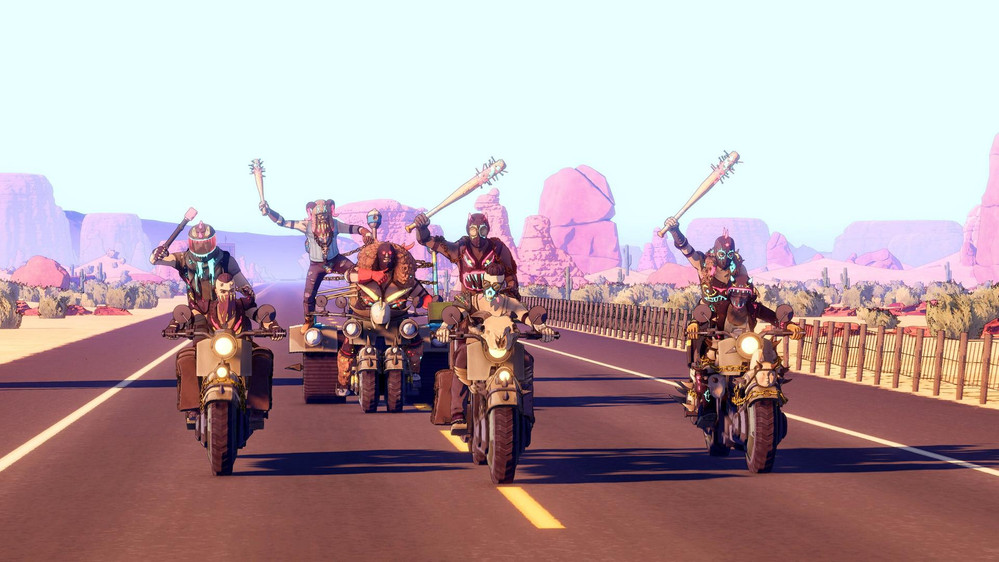
"You see this in the reception of more and more games. Everything becomes a part of the culture war. I hope we can get past this, because it’s very unfortunate, both for those in the industry today, potential new developers, investors, and publishers. No one wants to get caught in such a culture war storm."
"Has the reception of Dustborn affected your approach to development and the messages in storytelling going forward?"
"It’s hard to say no, even though I would like to. Everyone is afraid of the choices they make, and I don’t think that only applies to us. All our discussions about the next game are colored by this."
Tørnquist believes the industry has become more progressive, and that this deepen the divide towards the loud minority on the internet.
The value of diversity?
Tørnquist thinks it’s great that we can aim for diversity in the industry. Diversity has always been central to Red Thread’s games.
Those who aren’t interested in it don’t need to play those games, he believes.
"Diversity is positive for everyone. Games like Black Myth: Wukong, Mario, and Elden Ring won’t stop existing just because we release Dustborn. There’s room for both these games and everything in between – even those that only appeal to a limited audience."
"Has the debate around Dustborn changed your view of the room for political messages in games?"
"Absolutely not. Some games are pure entertainment and focus on the player experience and fun, and it’s great that such games exist. Other games aren’t as fun to play but are more about the feelings you get from playing them. Then there are games that can address more serious topics."
"Games can be many things," he finishes.
